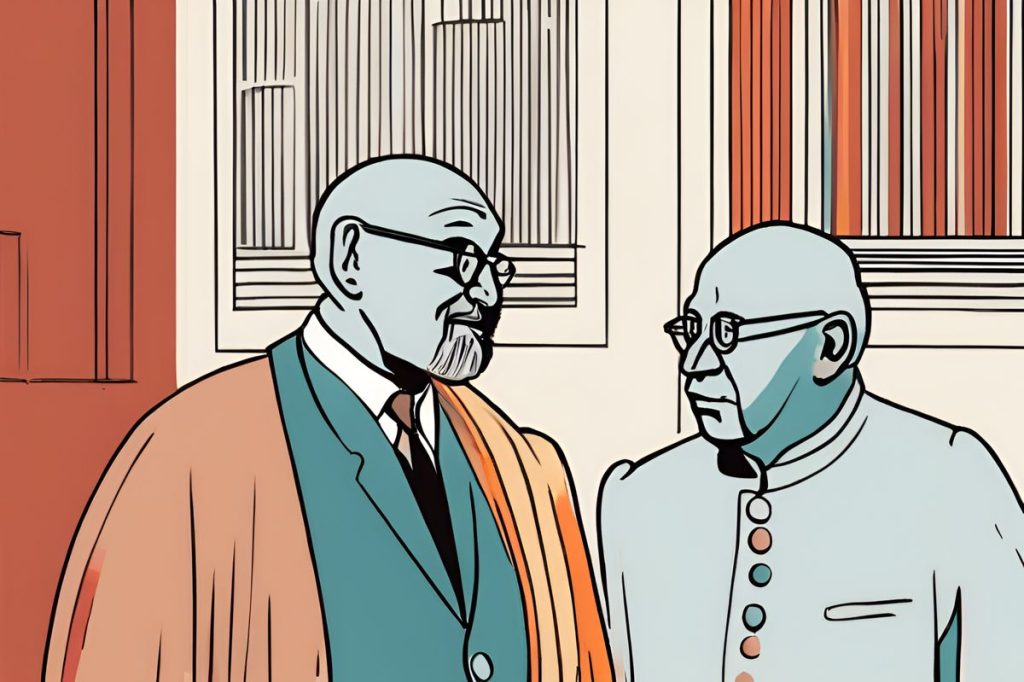Alexander Downer and Ersin Tatar are exploring fresh approaches to tackle the Cyprus issue, emphasizing sovereign equality and equal international status as crucial elements for future negotiations and potential breakthroughs. This shift from traditional federation talks to new strategies could reshape the peace process and pave the way for innovative solutions to this long-standing conflict.
What are the new approaches to resolving the Cyprus issue discussed by Alexander Downer and Ersin Tatar?
Alexander Downer and Ersin Tatar have discussed the necessity for innovative approaches to the Cyprus issue, focusing on sovereign equality and equal international status as prerequisites for negotiations. This shift from federation talks to recognizing sovereign equality marks a strategic pivot that could redefine future negotiations and inspire more productive outcomes.
Fresh Perspectives in Stalled Negotiations
During a recent visit to Cyprus, Alexander Downer, the former UN envoy to Cyprus, initiated discussions that emphasized the necessity for innovative approaches to the longstanding Cyprus problem. His meetings with Turkish Cypriot leader Ersin Tatar highlighted the challenges faced in reaching a resolution despite years of recurring talks. Downer, who dedicated six years to mediating the Cyprus dispute, expressed concern over the repetitive nature of proposals and the lack of progress they have engendered.
In their conversations, Downer and Tatar explored alternative solutions and strategies to reinvigorate the peace process. Downer, with his extensive diplomatic experience, including his tenure as Australia’s foreign minister, is a seasoned figure in international relations. His expertise brings valuable insights into a conflict that has, for too long, been mired in a vicious cycle of unproductive dialogues.
Sovereign Equality as a Starting Point
At the heart of their dialogue was Tatar’s stance on the recognition of sovereign equality and equal international status as prerequisites for the commencement of official negotiations. The Turkish Cypriot leader stands firm on these conditions, diverging from the previously exhausted federation talks. According to reports, Tatar insisted that with such acknowledgment, a renewed and potentially more fruitful phase of negotiations could begin.
Tatar’s approach signals a departure from traditional frameworks that have so far failed to deliver a lasting resolution. The emphasis on sovereign equality marks a strategic pivot that could redefine future talks. The meeting, which also included Tatar’s advisor for international relations, legal affairs, and a press officer, served as a platform to underline his new policy direction.
The International Dimension
The Cyprus issue has long been an international concern, with various stakeholders involved in the quest for a peaceful settlement. The island has been divided since 1974, with the northern part being predominantly Turkish Cypriot and the southern part Greek Cypriot. The United Nations has been instrumental in mediating the dispute, with numerous envoys, including Downer, playing pivotal roles in the peace process.
International dynamics continue to shape the discourse around Cyprus. The engagement of leaders like Downer and Tatar in direct conversation suggests a recognition that, despite the historical challenges, the door to creative diplomacy remains open. Their meeting reflects a belief in the potential for new ideas to be the catalyst for change.
The Road Ahead
As the Cyprus conflict persists, the need for fresh perspectives becomes increasingly apparent. The call for new ideas is a call to break the cycle of unsuccessful attempts at reconciliation and to consider alternatives that have not been previously tableed. While the path to peace is fraught with complexity, the engagement of experienced diplomats and leaders in such discussions lays the groundwork for hope.
The effectiveness of new proposals will ultimately be measured by their ability to bridge the divide between conflicting parties and to forge a path that respects the interests and aspirations of all Cypriots. The dialogue between Downer and Tatar may well be a stepping stone towards a new era of negotiations, one in which innovative thinking and mutual respect lead the way to a lasting resolution.
What are the new approaches to resolving the Cyprus issue discussed by Alexander Downer and Ersin Tatar?
Alexander Downer and Ersin Tatar have discussed the necessity for innovative approaches to the Cyprus issue, focusing on sovereign equality and equal international status as prerequisites for negotiations. This shift from federation talks to recognizing sovereign equality marks a strategic pivot that could redefine future negotiations and inspire more productive outcomes.
How do Alexander Downer and Ersin Tatar hope to reinvigorate the peace process in Cyprus?
During their discussions, Downer and Tatar emphasized the need for fresh perspectives and alternative solutions to break the cycle of unproductive dialogues that have plagued previous negotiations. Tatar’s insistence on sovereign equality as a starting point for official talks signals a departure from traditional frameworks and opens the door for potentially more fruitful negotiations.
What is the significance of recognizing sovereign equality in the context of the Cyprus issue?
The emphasis on sovereign equality as a prerequisite for negotiations represents a shift from past approaches that have failed to yield a lasting resolution. Tatar’s stance underscores the importance of equal status in paving the way for more meaningful discussions and potentially groundbreaking solutions to the long-standing conflict in Cyprus.
How do international dynamics play a role in the ongoing efforts to resolve the Cyprus issue?
The Cyprus conflict has been a longstanding international concern, with various stakeholders, including the United Nations, actively involved in mediation efforts. The engagement of leaders like Downer and Tatar in direct dialogue reflects a recognition of the importance of creative diplomacy and the potential for new ideas to drive progress towards a peaceful resolution in Cyprus.

